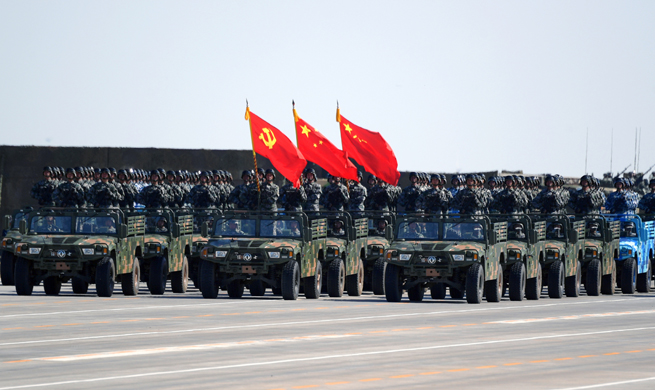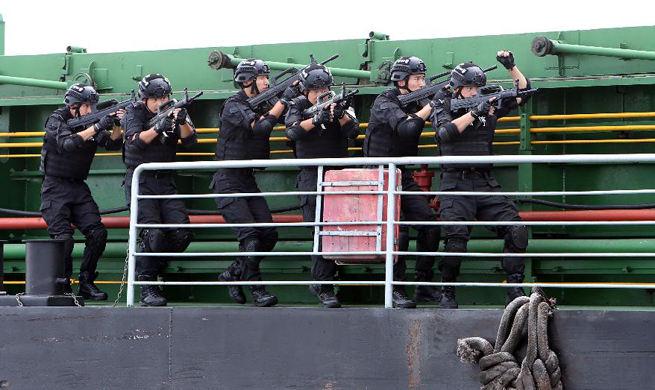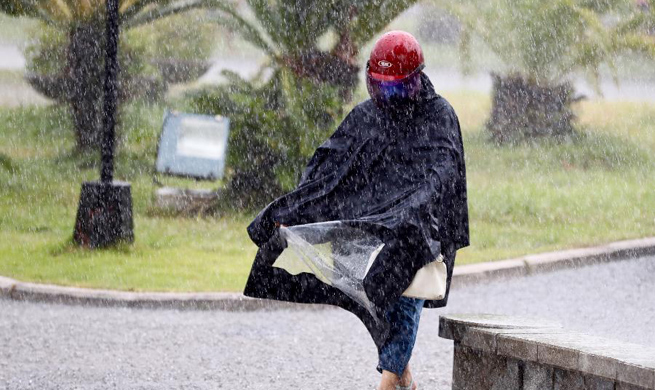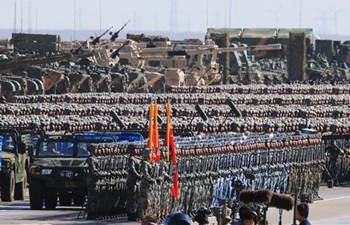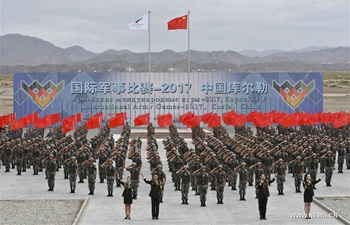ANKARA, July 31 (Xinhua) -- Turkey is tuning down its row with Germany following the latter's warning about risks of investing in the country and an "overhaul" of their relationship amid a political row.
Turkey immediately stepped up to reassure German investors that its investment environment for foreign investors is reliable and this policy will continue in the future.
Investments by German firms in Turkey are safe and their businesses would not be affected by political tension between Ankara and Berlin, German weekly magazine Der Spiegel quoted Turkish Deputy Prime Minister Mehmet Simsek as saying on July 29.
"I can assure the business community that Turkey remains an open, liberal and investment-friendly country," Simsek said.
The minister's statement was the latest of attempts made by the Turkish government to stem the economic fall-out after Berlin threatened to slow down investment in Turkey, whose economy is dependent on foreign capital.
Turkish Prime Minister Binali Yildirim last week also met with German business executives, underlining that Ankara would not allow tension between the two governments to harm the companies' interests in Turkey.
"It is very important to us that you are not a part of this tension and do not suffer any damage from the events," Yildirim said on Thursday.
Turkey's Economy minster Nihat Zeybekci also joined the chorus to try to calm down the storm with Germany.
"The Turkey-Germany crisis is temporary. One must refrain from words that would cause lasting harm to the economies. Germany must reassess comments that are inappropriate." Zeybekci said on Friday, adding that the German-Turkish relations will pass this stress test.
Amid a growing diplomatic row with Turkey, German Foreign Minister Sigmar Gabriel threatened to slap sanctions on Turkey, after the arrest of human rights activists on July 5 including a German citizen, Peter Steudtner, who is a representative of Amnesty International.
The incident further added to the tensions caused by the detention in February of Deniz Yucel, a German-Turkish dual-nationality reporter for the newspaper Die Welt, and by the Turkey's refusal to allow a group of German lawmakers to visit a NATO base in Turkey.
Gabriel cautioned its citizens against traveling to Turkey while threatening to take measures that could hinder German investment in the country.
Last week, German media reported that Turkish authorities handed Berlin a list of almost 700 German companies, including Daimler and BASF, that were accused of having links to the U.S.-based Turkish cleric Fethullah Gulen, accused by the Turkish government of masterminding last July's failed coup.
Ankara immediately withdrew its requests from Germany via the Interpol, adding that German companies based in Turkey were not under investigation.
Prominent German companies such as Daimler AG, Deutsche Bank, Siemens, Volkswagen and Axel Springer SE have remarkable investments in Turkey.
Kemal Sahin, board chairman of the Sahinler Holding, who also attended the Turkish prime minister's meeting with German business executives, said the political dispute should be resolved between two countries since it will have adverse affect on future German investments here.
At the meeting, Turkish minister of economy told the participants that they plan to hold meetings with CEOs of firms investing in Turkey in fall at the headquarters in Germany in order to remove their concerns.
In 2016, the trade volume between the two countries reached 35 billion U.S. dollars.
Germany is the biggest exporter of tourists to Turkey. A total of 5.5 million German tourists visited Turkey in 2015, though the number dropped to only 3.8 million in 2016.
Ahmet Insel, an economist and daily Cumhuriyet columnist, emphasized that although German companies have not withdrawn their current investments in Turkey, it would be difficult for Turkey to attract new investment from now on.
Other investors from western countries could also be deterred from making investments in Turkey by the treatment of German companies.
Turkish economy could slow down in the upcoming period, Insel warns, citing the decline in direct foreign investment in recent years, partly because of Turkish government's strained ties with some foreign countries.











